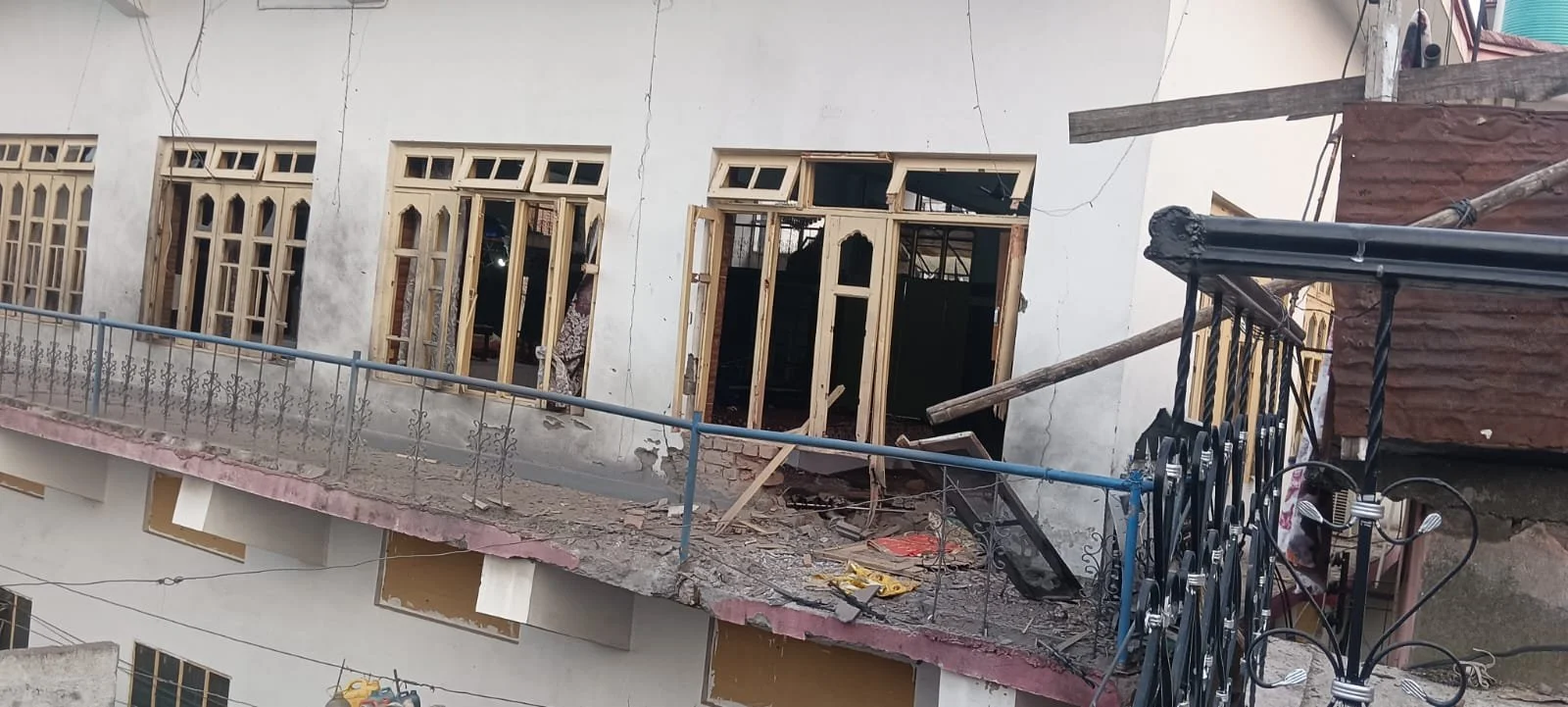(ANALYSIS) Anime and Religious Identity: Cultural Aesthetics in Japanese Spiritual Worlds helps students explore questions of meaning, ethics and belief that anime brings to life. It examines themes such as what happens when the past resurfaces? What does it mean to carry the weight of responsibility? And how can suffering become a path to transformation?
Read MoreOn India’s busy streets, vehicles adorned with Hindu symbols are more than just modes of transport — they have increasingly become mobile expressions of political and religious identity. The proliferation of these Hindu stickers has transformed everyday commuting, a phenomenon deeply intertwined with rising religious tensions.
Read More(ANALYSIS) This is a mountainous and, until recently, remote area that is culturally and historically distinct from the rest of India. It is also the most thoroughly Baptist region in the world. For example, the church in Mon, a town of approximately 17,000 people, is the largest Baptist church in Asia. It dwarfs surrounding buildings and can seat 10,000 worshippers.
Read More(ANALYSIS) A new study has found nearly 950 hate-related incidents in India during the first year of the main ruling party’s third term. Religious minorities, especially Muslims and Christians, were the main targets of violence and hate speech. This rise in unchecked and largely unpunished hostility should concern all citizens.
Read More(ANALYSIS) Taiwan’s international rating on freedom of religion is undisputedly very high. The 2021 Report on International Religious Freedom, published by the U.S. Department of State, also noted Taiwan’s constitutional protection of the freedom of religion as well as the diversity of religious beliefs, but questions are asked about how freely can one practice their religion.
Read More(ANALYSIS) On June 11, 2025, a nongovernmental organization, Global Rights Compliance, published findings of their investigation into the issue of Western companies linked to the People’s Republic of China’s (PRC) critical minerals industry in the Xinjiang Uyghur Autonomous Region (XUAR).
Read MoreWhen a shell slammed into a madrassa (an Islamic school) housing over 1,200 children, its caretaker, Sayyed Habib, didn’t dial the army or the police. He didn’t call emergency services. He called Pradeep Sharma, a Hindu and former lawmaker, and his best friend since ninth grade. it was an example of how people of differing faiths found it in their hearts to help one another.
Read More(ANALYSIS) The central government’s gazette notification for India’s upcoming 2027 census omits the word “caste.” This, despite earlier public assurances that caste data would be collected. The absence of explicit mention has triggered accusations of deliberate evasion. Is the reluctance tied to the disruptive potential of a full caste enumeration—one that could unsettle the ideological foundations of Hindu nationalist politics?
Read More(ANALYSIS) To this day, there are no national memorials for the victims. Instead, triumphalist military monuments, many of them built in Tamil-majority areas, celebrate a victory in a war whose collateral damage amounted to war crimes and crimes against humanity.
Read MoreA “Jesus Village” for children in crisis 50 miles west of Phnom Penh, the capital of Cambodia, will span about 15 acres and house 240 orphans in 12 houses. Cambodia Christian Ministries has already accepted 65 children, assuming legal responsibility for their care from the Cambodian government.
Read MoreThe Ahmadiyya community in Pakistan has long experienced significant constraints on its religious practices. From not being allowed to call their places of worship “mosques” or use Islamic terms such as “Azan” (call to prayer) to not being able to vote because Ahmadis must either renounce their faith or agree to be placed on a separate electoral list categorizing them as “non-Muslim.”
Read MoreChina is operating a vast network of “colonial” boarding schools across Tibet that forcibly removes children—including those as young as four—from their families, a new report released Wednesday claims. The report, published by the U.S.-based Tibet Action Institute, says the system is designed not for education access but for political assimilation, cutting children off from their language, culture and religion.
Read More(ANALYSIS) A recent report by U.N. Women revealed that female empowerment has been a top priority in Malaysia, the southeast Asian country of 35 million people. From running tech startups, costume and jewelry businesses to driving public buses, women in Muslim-dominated Malaysia are largely economically, socially and culturally independent.
Read MoreZakir Hussain, the imam of the ancient Akhunji Mosque in Mehrauli, a section of South Delhi, has a vivid memory of Jan. 31, 2023. He described the terrible events of that morning, when the Delhi Development Authority destroyed not only the centuries-old mosque — but also the nearby Madrasa Bahrul Uloom and the cemetery next to it.
Read More(OPINION) From what I know about her, Guanyin is a-OK with my skeptical ways. I don’t believe in Greek, Egyptian or Hindu goddesses either, but I do appreciate the idea of a feminine divine archetype that suggests the deep-level empathy women may access from our oneness with our child in utero, literally holding the space for another within.
Read MoreIn India, caste oppression is a persistent and insidious reality that continues to affect millions, even in communities that formally reject caste divisions. The Christian community, which upholds the belief in equality before God, is not exempt from this social inequality. Dalit Christians, in particular, face discrimination and exclusion — even within church spaces. However, a growing number of Dalit Christians are challenging this oppression.
Read MoreMany Christian families reported living in fear — facing threats of social boycott, electricity cuts and verbal abuse. Some have left their villages or publicly disavowed their faith to avoid conflict. Others now live with the trauma of having been denied the chance to grieve with dignity. In cases where women were disrobed or attacked during mourning, the abuse was not only communal but gendered.
Read More(EXPLAINER) As tensions rise between India and Pakistan, questions about what constitutes a lawful war are once again in focus. International law makes a clear distinction between jus ad bellum (the right to go to war) and jus in bello (the rules governing conduct in war). These are framed by the United Nations Charter, customary international law and treaties such as the Geneva Conventions, all of which define what states and their leaders can — and cannot — do during conflict.
Read MoreSadhu Sundar Singh, a Christian pastor, serves Adivasi/tribal communities in Odisha’s Balasore district. He helps people in these communities move away from alcoholism, hooliganism and the consumption of unsafe water. However, because he also shares his Christian faith with them, he has received death threats.
Read MoreThe end of the Vietnam War, recognized on April 30, marked the end of a chapter for John Cope. But it also started another. An 18-month tour with the Air Force in the country ended in 1971. During his time there, though, Cope had grown fond of the South Vietnamese people.
Read More



















